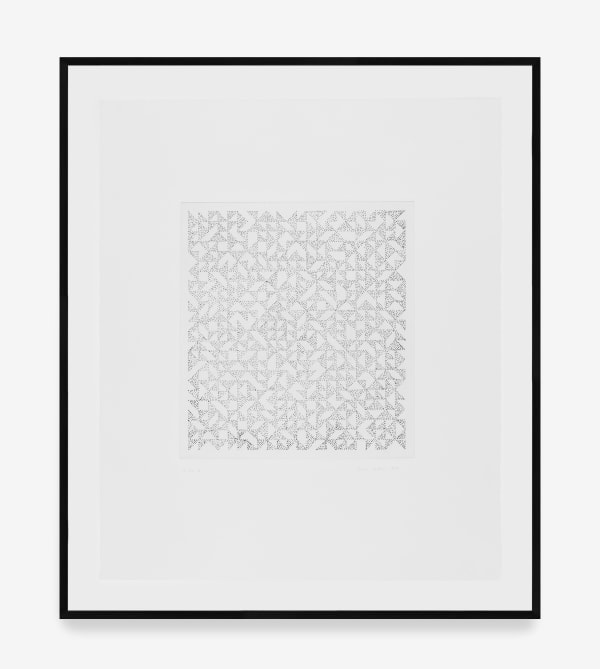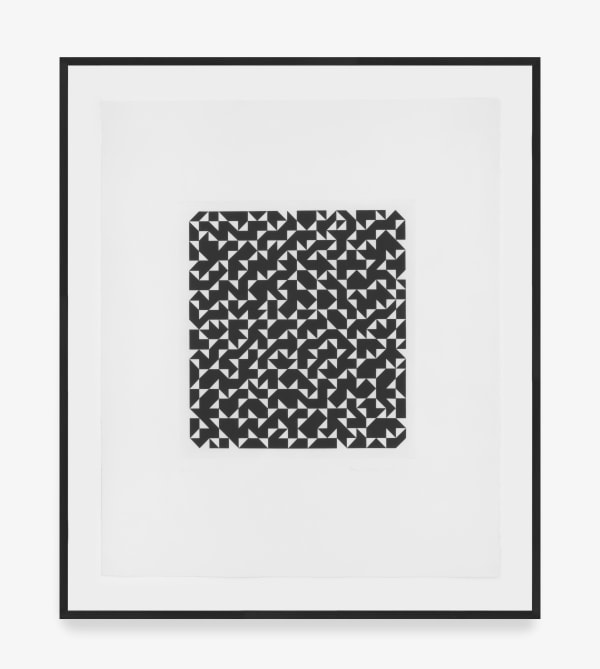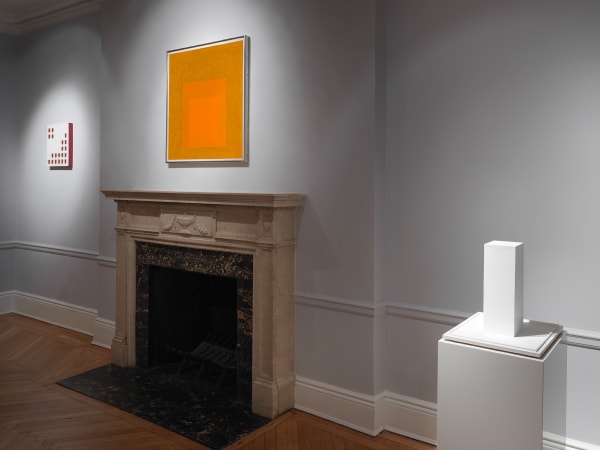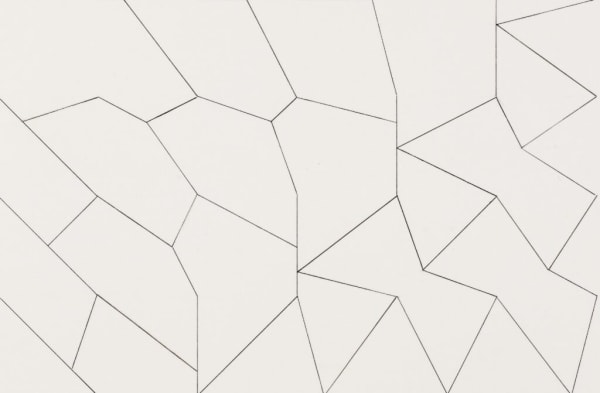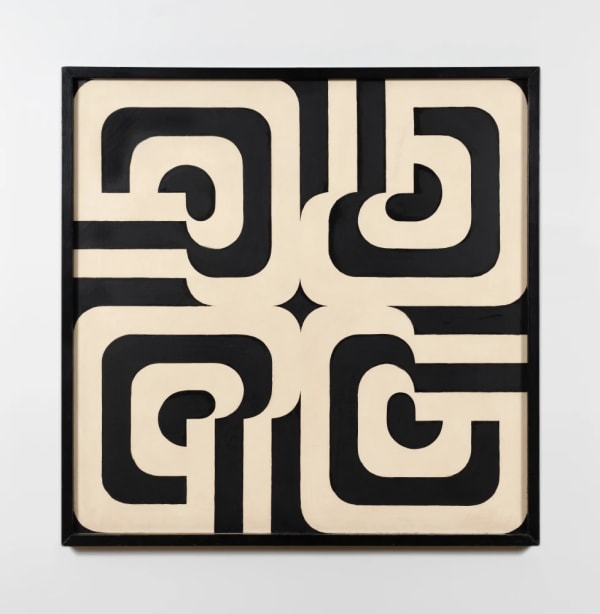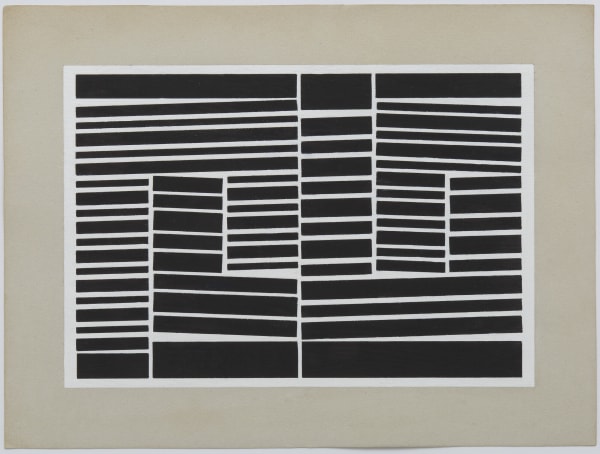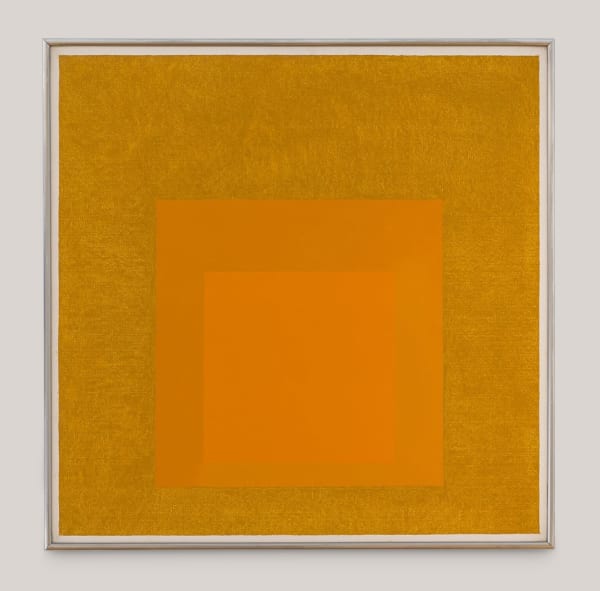Overview
"Being creative is not so much the desire to do something as the listening to that which wants to be done: the dictation of the materials."
Anni Albers (Berlin, Germany, 1899 - Orange, CT, 1994) was an artist, textile designer, printmaker, and educator. Albers studied painting with German Impressionist Martin Brandenburg between 1916 to 1919. In 1922, she enrolled at the Bauhaus, where the school assigned her to the Weaving Workshop, the only workshop available for women. At the Bauhaus she met her future companion, Josef Albers. After completing her course of study, Albers joined the Bauhaus faculty in 1929. In 1933, Anni and Josef Albers immigrated to North Carolina. In the United States, they founded the art department at Black Mountain College, where Anni Albers implemented a curriculum that integrated weaving and industrial design. After moving to New Haven, CT, in 1950, she focused primarily on creating mass-reproducible fabrics, writing, and working on the "pictorial weavings." From 1963 until the end of her life, she devoted an essential part of her production to printmaking, often incorporating highly experimental techniques and processes. In 1965, she published On Weaving, a seminal book for the field of design as an academic area of study and aesthetic research. She is known for bringing experimentation to the field of textile design through the incorporation of non-traditional materials. Anni Albers is one of the most influential textile artists of the twentieth century.
Works
Projects
-

Josef & Anni Albers
Something that Makes you Breathe with a Different Kind of Happiness 11 May - 23 Jul 2023Zeit Contemporary Art is honored to present an online viewing room with a curated selection of prints by Josef and Anni Albers. Widely known today for their bodies of work...Read more -

Minimal Means
Concrete Inventions in the US, Brazil and Spain 24 Jan - 16 Mar 2019Curated by Joan Robledo-Palop, Minimal Means is a conversation about space and the way people occupy and imagine that space in three parts of the world. The exhibit focuses on...Read more
Press
-

Zeit Contemporary Art Presents An Exquisite Collection Of Works At Art Miami 2022
Art Plugged, November 24, 2022 -

Minimal Means: Concrete Inventions in the US, Brazil and Spain. Curated by Joan Robledo-Palop
JONATHAN GOODMAN, Arte Fuse, March 8, 2019 -

Artists Bianca Boragi and Julia Rooney to lead talk on Minimal Means exhibition
ArtFixDaily, February 13, 2019 -

Minimal Means
Meer, January 28, 2019 -

Minimalismo de EUA, Brasil e Espanha se fundem em Nova York
Helen Cook, EFE, O Estadão, January 25, 2019 -

El minimalismo internacional en Zeit
Ana Robledano, Ars Magazine, January 22, 2019 -

A Group Show at Zeit Contemporary Art Introduces a Dialogue on Minimal Means
Elena Martinique, Widewalls Magazine, January 22, 2019


